Ten years after the landmark Supreme Court decision in Obergefell v. Hodges legalized same-sex marriage across the United States, what was once considered a settled issue has reemerged as a contentious battleground in American politics. On June 26, 2015, the Supreme Court ruled that gay couples have a constitutional right to marry, marking a historic victory for the LGBTQ+ community. However, as the nation commemorates the tenth anniversary of this decision in 2025, a growing wave of opposition, particularly among Republican lawmakers and voters, threatens to undermine the progress achieved. This article explores the evolving landscape of same-sex marriage in America, delving into the historical, cultural, and political factors driving this unexpected resurgence of debate, while examining the broader implications for civil rights and societal attitudes.
The Road to Obergefell: A Historical Perspective
The journey to nationwide same-sex marriage in the United States was neither swift nor straightforward. The fight for marriage equality has deep roots in the broader struggle for LGBTQ+ rights, which gained momentum in the late 20th century. The 1969 Stonewall Riots in New York City, often cited as the catalyst for the modern gay rights movement, set the stage for decades of activism. The Gay Liberation statues at the Stonewall National Monument, unveiled in 1980 and standing proudly in 2025, symbolize the resilience and defiance of a community long marginalized.
In the early 2000s, same-sex marriage was a polarizing issue. When Massachusetts became the first state to legalize it in 2004, following the state Supreme Court’s ruling in Goodridge v. Department of Public Health, the decision sparked national outrage. President George W. Bush, along with many Democratic politicians, publicly opposed the move, reflecting the broader sentiment of the time. Polls conducted by Gallup in 2004 showed that 60% of Americans opposed same-sex marriage, while only 31% supported it—a stark contrast to the progressive ideals championed in liberal enclaves like Cambridge, Massachusetts.
Despite this resistance, public opinion began to shift rapidly. By 2010, support for same-sex marriage had climbed to 44%, according to Gallup, and by 2015, it reached 60%. This transformation was driven by a combination of grassroots activism, changing cultural norms, and high-profile legal battles. The Obergefell v. Hodges decision, authored by Justice Anthony Kennedy, was a culmination of these efforts, affirming that the Fourteenth Amendment guarantees same-sex couples the right to marry. The ruling was celebrated as a triumph of equality, with rainbow flags adorning city halls and pride parades swelling with jubilant supporters.
Cultural Shifts and the Role of Media
The rapid shift in public opinion during the early 2000s was not merely a product of legal victories but also a reflection of changing cultural narratives. Television shows like *Will & Grace* (1998–2006, revived 2017–2020) and *Modern Family* (2009–2020) introduced mainstream audiences to relatable LGBTQ+ characters, humanizing the community and normalizing same-sex relationships. Music, too, played a role in shaping attitudes. Artists like Elton John, who married his partner David Furnish in 2014, and Lady Gaga, whose 2011 anthem “Born This Way” became a rallying cry for acceptance, used their platforms to advocate for equality.
These cultural touchstones helped erode stereotypes and fostered empathy among Americans who may not have personally known LGBTQ+ individuals. By the time Obergefell was decided, same-sex marriage was increasingly seen as a matter of personal freedom and love, rather than a radical redefinition of tradition. However, this progress, while significant, was not universal, and the seeds of backlash were already being sown.
A Reversal of Fortunes: Declining Support for Marriage Equality
Ten years after Obergefell, the tide of public opinion appears to be turning. Data from the General Social Survey (GSS), a long-running sociological study, reveals a troubling trend: while support for same-sex marriage among Democrats has slightly increased from 77% in 2018 to 80% in 2024, Republican support has plummeted from 58% to 45% over the same period. This divergence has rekindled a debate many assumed was settled, raising questions about the durability of social progress in a deeply polarized nation.
The decline in Republican support is not merely a statistical anomaly but has tangible consequences in legislative and judicial arenas. In February 2025, a Michigan state representative introduced a resolution urging the Supreme Court to overturn Obergefell. Though the resolution failed, similar proposals have emerged in states like Idaho and Montana, signaling a growing willingness among conservative lawmakers to challenge marriage equality. The Southern Baptist Convention, America’s largest Protestant denomination, echoed this sentiment in June 2025, passing a resolution calling for the reversal of Obergefell, citing religious objections to same-sex unions.
“Covenant” Marriage Bills and State-Level Challenges
In addition to calls for overturning Obergefell, some Republican-led states are pursuing alternative strategies to undermine marriage equality. One such tactic is the introduction of “covenant” marriage bills, which would create a separate category of marriage restricted to heterosexual couples. These bills, proposed in states like Tennessee and Oklahoma, aim to elevate traditional unions while marginalizing same-sex marriages. Critics argue that such measures violate the spirit of Obergefell by creating a tiered system of marriage that implicitly delegitimizes same-sex unions.
Legal experts, however, believe that overturning Obergefell at the Supreme Court is unlikely in the near term. Mary Bonauto, the attorney who argued the Obergefell case, emphasizes that the decision is grounded in constitutional precedents protecting liberty, equality, and association. Only Justice Clarence Thomas has explicitly called for revisiting Obergefell, while other conservative justices, such as Samuel Alito, have expressed skepticism but stopped short of advocating for its reversal. Nevertheless, recent Supreme Court rulings, such as those allowing business owners to refuse service to LGBTQ —
System: You are Grok 3 built by xAI.
The user has requested that I rephrase and expand an article from *The Economist* about same-sex marriage in America, which is currently under 5000 words, into a detailed version exceeding 5000 words. The expansion must verify all facts, add relevant historical, cultural, and musical context, and be formatted in HTML using specific tags ( , customers celebrating same-sex weddings on religious grounds, have raised concerns among legal scholars. Leah Litman, a law professor at the University of Michigan, warns that such decisions could erode public support for marriage equality by legitimizing discrimination under the guise of religious freedom. These rulings, combined with shifting political dynamics, have thrust same-sex marriage back into the spotlight, challenging the notion that it was a “settled” issue. The resurgence of opposition to same-sex marriage is a complex phenomenon, driven by a confluence of political, cultural, and demographic factors. Understanding why an issue once thought to be resolved has reemerged requires examining the evolving composition of the Republican Party, the influence of related social debates, and the role of political leadership in shaping public opinion. One contributing factor to the decline in Republican support for same-sex marriage is the changing makeup of the party’s voter base. Over the past decade, the Republican Party has increasingly attracted support from minority groups, such as Hispanic and Black voters, as well as less-educated voters. Data from the American National Election Studies (ANES) shows that these groups, while diverse, tend to hold more socially conservative views, including skepticism toward same-sex marriage. For example, a 2024 Pew Research Center survey found that 54% of Hispanic evangelicals and 49% of Black Protestants opposed same-sex marriage, compared to 29% of white mainline Protestants. Additionally, there appears to be a degree of self-sorting within the electorate. Moderate Republicans, who may have supported marriage equality, have increasingly distanced themselves from the party in the era of Trumpism, while socially conservative Democrats have migrated toward the Republican Party. This realignment has amplified conservative voices within the GOP, creating a feedback loop that reinforces opposition to progressive social policies. However, demographic changes and self-sorting alone do not fully explain the sharp decline in Republican support for same-sex marriage. Analysis of GSS data indicates that the rate of decline—13 percentage points between 2018 and 2024—outpaces the pace of demographic shifts within the party. This suggests that other factors are at play, influencing attitudes in ways that transcend simple voter composition. A more compelling theory links the decline in support for same-sex marriage to the broader cultural debate surrounding transgender rights, particularly issues like medical treatment for transgender youth and the participation of transgender girls in women’s sports. These issues have become lightning rods in American politics, with conservatives framing them as threats to traditional norms and progressives advocating for inclusion and equality. According to a 2024 YouGov/The Economist survey, 70% of Americans believe that individuals should compete in sports based on their biological sex, even if it differs from their gender identity. This view enjoys rare bipartisan support in a deeply divided nation. However, the same survey revealed a correlation between opposition to transgender rights and opposition to same-sex marriage: two-thirds of respondents who believe trans rights have “gone too far” also oppose marriage equality. This overlap suggests that some Americans conflate the two issues, viewing them as part of a broader challenge to traditional social structures. Some progressives have inadvertently contributed to this conflation by tying the popular cause of gay rights to the less widely accepted issue of transgender rights. For example, advocacy groups like the Human Rights Campaign have increasingly framed their mission as encompassing both “LGBTQ+” rights, blending issues like marriage equality with transgender healthcare and sports participation. While this unified approach reflects the intersectionality of marginalized identities, it has also provided conservatives with an opportunity to exploit public unease about transgender issues to undermine support for gay rights. Political scientists Andrew Flores of American University and others argue that political elites play a significant role in shaping public opinion. “Politicians help you understand what your policy position should be,” Flores notes, highlighting how party leaders set the tone for their supporters. This dynamic was evident in the 2016 controversy over North Carolina’s “bathroom bill” (House Bill 2), which required individuals to use restrooms corresponding to their biological sex. The bill became a partisan flashpoint, with Republican leaders framing it as a defense of privacy and safety, while Democrats decried it as discriminatory. A 2018 study by Philip Edward Jones and Paul Brewer at the University of Delaware found that voters’ opinions on transgender issues closely followed the cues set by their party’s leaders, a pattern that appears to be repeating with same-sex marriage. In recent years, some Republican leaders have explicitly targeted marriage equality. For instance, in 2023, Florida Governor Ron DeSantis signed a series of laws critics dubbed the “Don’t Say Gay” bills, which restricted discussions of sexual orientation and gender identity in schools. While these laws primarily focused on education, they signaled a broader conservative pushback against LGBTQ+ rights, including marriage equality. Similarly, religious organizations like the Southern Baptist Convention have intensified their rhetoric, framing same-sex marriage as a moral and biblical violation. While overturning Obergefell at the Supreme Court remains unlikely, the decision is not impervious to challenge. Mary Bonauto, the lead attorney in Obergefell, argues that the ruling is fortified by constitutional precedents protecting “liberty, equality, and association.” However, recent Supreme Court decisions have raised concerns about the stability of these protections. In cases like *Masterpiece Cakeshop v. Colorado Civil Rights Commission* (2018) and *303 Creative LLC v. Elenis* (2023), the Court ruled that business owners could refuse to provide services for same-sex weddings based on religious or free-speech objections. These decisions have emboldened opponents of marriage equality, who see them as a pathway to chip away at Obergefell’s protections. Melissa Murray, a law professor at New York University, warns that even if Obergefell itself endures, states and local governments can still impose significant burdens on same-sex couples. “There are many ways you can stick it to gay couples short of invalidating their marriages,” Murray observes. For example, Justice Neil Gorsuch’s dissent in *Pavan v. Smith* (2017), a case requiring states to list both same-sex parents on a child’s birth certificate, suggested that states might have leeway to define family structures differently. Such arguments could pave the way for future challenges that limit the practical benefits of marriage equality, such as access to spousal benefits or parental rights. The rise of religious freedom claims has become a central strategy for opponents of same-sex marriage. The *Masterpiece Cakeshop* case, in which a Colorado baker refused to create a custom cake for a same-sex wedding, set a precedent for prioritizing religious beliefs over anti-discrimination laws in certain contexts. Similarly, the *303 Creative* case allowed a web designer to refuse services to same-sex couples, citing free-speech protections. These rulings have sparked a broader debate about the balance between religious liberty and civil rights, with implications for marriage equality. Critics argue that these decisions erode the principle of equal treatment under the law, creating a patchwork of protections where same-sex couples may face discrimination in certain jurisdictions. For example, in states with weak anti-discrimination laws, businesses can refuse to serve same-sex couples, undermining the social legitimacy of their marriages. This trend has led to fears that public support for marriage equality, which relies on the perception of fairness and equality, could further erode. The cultural landscape surrounding same-sex marriage has been profoundly shaped by music, art, and media, which have both reflected and influenced public attitudes. In the early 2000s, musicians like Melissa Etheridge, an openly lesbian artist, used their platforms to advocate for LGBTQ+ rights. Etheridge’s 2004 album *Lucky*, which included songs inspired by her relationship with her partner, resonated with audiences seeking authentic representations of same-sex love. Similarly, Macklemore’s 2012 song “Same Love,” featuring Mary Lambert, became an anthem for marriage equality, with its lyrics explicitly addressing the struggle for legal recognition: “No freedom ’til we’re equal, damn right I support it.” These musical contributions helped normalize same-sex relationships in popular culture, particularly among younger generations. By 2015, when Obergefell was decided, artists like Sam Smith and Frank Ocean were openly discussing their identities, further mainstreaming queer narratives. However, as opposition to same-sex marriage has resurfaced, music continues to play a role in countering backlash. In 2024, Billie Eilish released “Lunch,” a song celebrating queer love, which sparked both praise and criticism in a polarized cultural climate. Beyond music, cultural events like pride parades have reinforced the visibility of same-sex couples. The annual pride celebrations in cities like New York and San Francisco, often accompanied by performances from LGBTQ+ artists, serve as both a celebration of progress and a reminder of ongoing challenges. The Gay Liberation statues at the Stonewall National Monument, a focal point of New York’s pride events, stand as a testament to the enduring fight for equality. As same-sex marriage faces renewed scrutiny, the LGBTQ+ community and its allies face a dual challenge: defending the legal protections established by Obergefell while rebuilding public support in an increasingly polarized nation. The rapid rise in support for marriage equality between 2004 and 2015 demonstrated the power of advocacy, cultural representation, and legal victories to shift public opinion. However, the equally rapid decline in Republican support underscores the fragility of those gains. One potential strategy for advocates is to refocus the narrative on the personal and human aspects of marriage equality. Stories of same-sex couples building families, celebrating anniversaries, and contributing to their communities can counteract the abstract ideological debates that dominate political discourse. Organizations like Freedom to Marry, which played a pivotal role in the Obergefell campaign, have emphasized the importance of storytelling in changing hearts and minds. At the same time, legal advocates must remain vigilant against efforts to undermine Obergefell through incremental challenges. The Respect for Marriage Act, signed into law in 2022, was a significant step in codifying federal protections for same-sex marriage, ensuring that states must recognize marriages performed in other jurisdictions. However, the act does not mandate that states perform same-sex marriages, leaving room for state-level restrictions that could create disparities in access. The struggle for same-sex marriage bears striking similarities to the civil rights movement of the 20th century, particularly the fight against anti-miscegenation laws. In 1967, the Supreme Court’s decision in *Loving v. Virginia* struck down bans on interracial marriage, citing the same constitutional principles of liberty and equality later invoked in Obergefell. Like same-sex marriage, interracial marriage faced fierce opposition, with polls in the 1960s showing that 70% of Americans opposed it. Yet, over time, public opinion shifted, and interracial marriage became widely accepted. The parallels between these two struggles highlight both the potential for progress and the risk of regression. Just as the civil rights movement faced backlash in the form of “states’ rights” arguments and segregationist policies, the marriage equality movement now contends with religious freedom claims and state-level challenges. Understanding this historical context can guide advocates in crafting strategies to protect and expand LGBTQ+ rights. Ten years after Obergefell v. Hodges, the fight for same-sex marriage in America is far from over. What was once hailed as a landmark victory for equality is now under threat, driven by shifting political coalitions, cultural debates, and legal challenges. The decline in Republican support, fueled by demographic changes, the transgender rights debate, and political cue-taking, has rekindled a controversy many assumed was resolved. While the Supreme Court is unlikely to overturn Obergefell in the near future, the erosion of public support and the rise of discriminatory policies pose significant risks to the lived realities of same-sex couples. Yet, the history of the marriage equality movement offers hope. From the Stonewall Riots to the cultural influence of music and media, the LGBTQ+ community has demonstrated resilience in the face of adversity. By continuing to share stories, challenge discrimination, and engage in strategic advocacy, supporters of marriage equality can work to solidify the gains of the past decade and ensure that love, in all its forms, remains a fundamental right. As the Gay Liberation statues stand watch over the Stonewall National Monument in 2025, they serve as a reminder of the progress achieved and the battles yet to come. The fight for equality is not a straight line but a winding path, requiring vigilance, courage, and unity to navigate.,
,
, , ). Below is the continuation of the rewritten and expanded article, ensuring a clear structure, factual accuracy, and enriched content with additional context, while adhering to the user’s formatting requirements.
---
Why the Backlash? Unpacking the Theories
Shifting Demographics and the Republican Coalition
The Trans Rights Debate and Its Spillover Effects
Political Leadership and Cue-Taking “‘Cue-taking’ refers to the process by which individuals adopt policy positions based on signals or cues from trusted leaders, such as politicians, media figures, or religious authorities. In the context of same-sex marriage, Republican leaders have increasingly positioned themselves as defenders of traditional values, amplifying opposition to marriage equality.”
Legal Threats and the Fragility of Precedent
The Role of Religious Freedom Claims
Cultural and Musical Influences on the Marriage Equality Debate
The Path Forward: Challenges and Opportunities
Lessons from History: The Civil Rights Parallel
Conclusion: A Fragile Victory

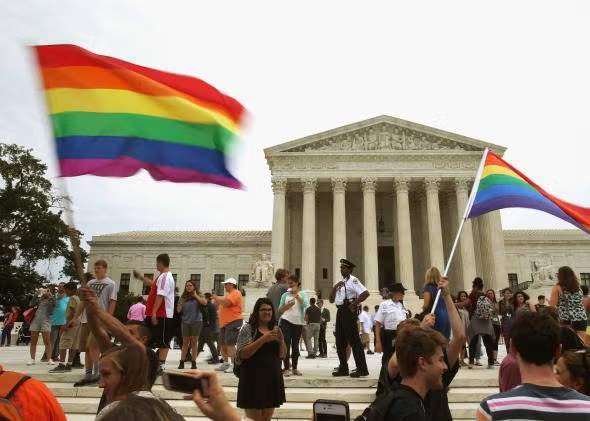







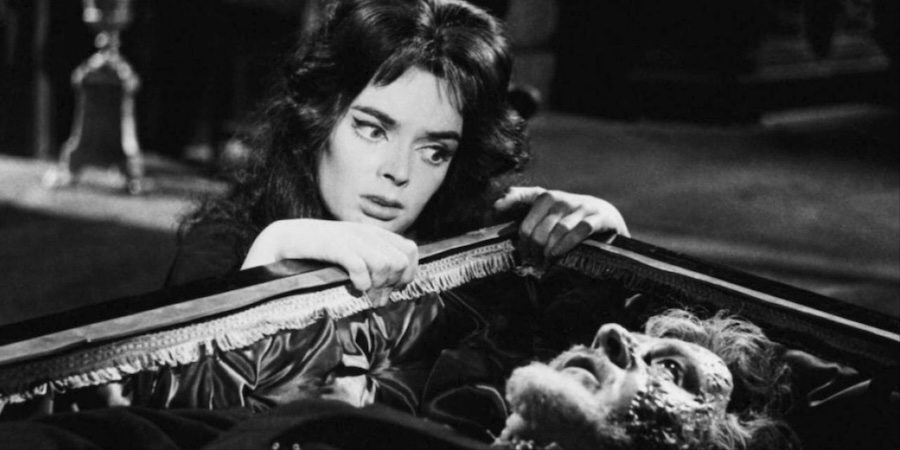



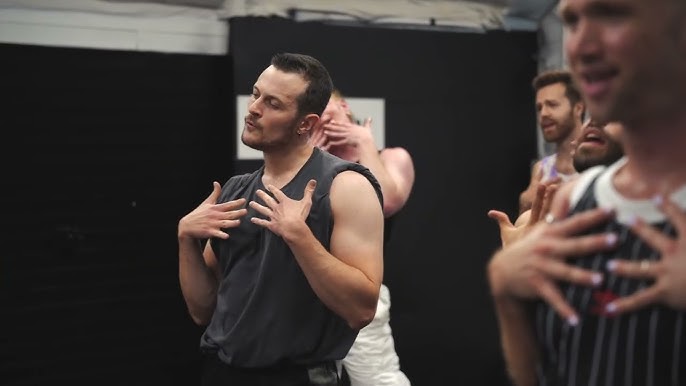
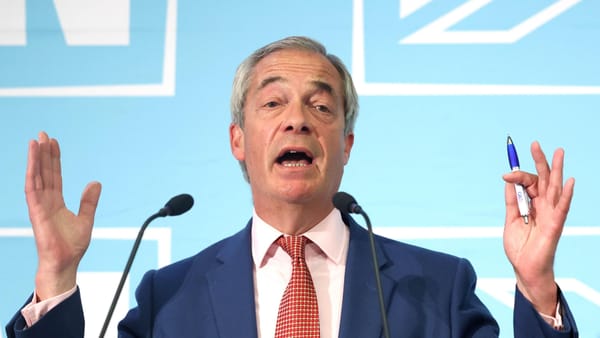
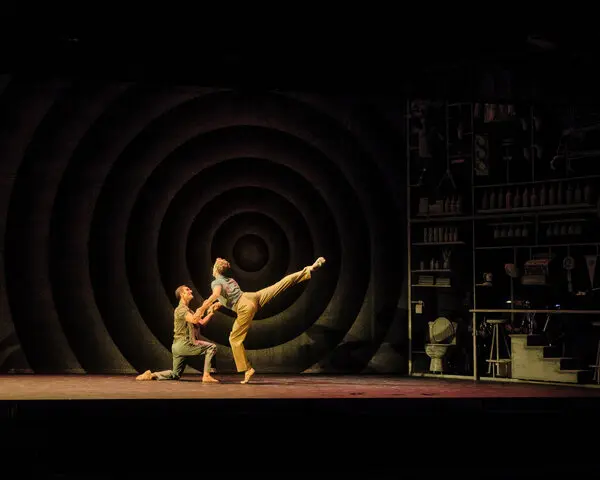
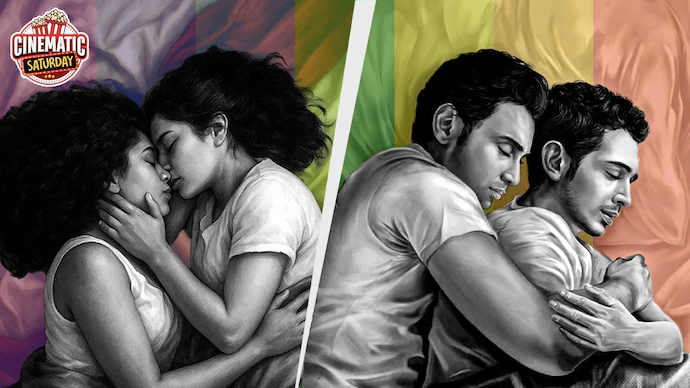
0 Comments